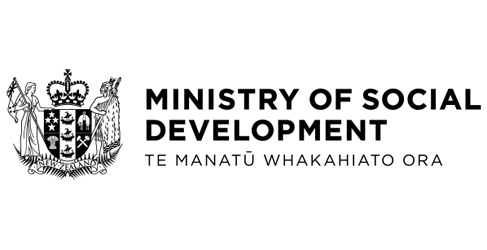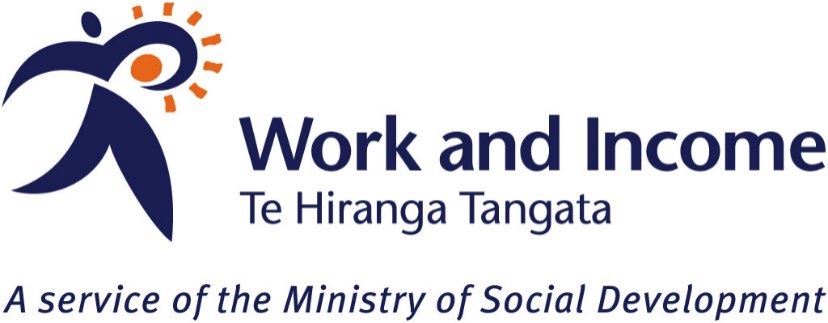
IN-CONFIDENCE
7 December 2023
Saska Hayes
[FYI request #24404 email]
Tēnā koe Saska Hayes
On 11 October 2023, you emailed the Ministry of Social Development (the
Ministry) requesting, under the Official Information Act 1982 (the Act), the
following information:
The policy sections outlining what social services were available to
asylum seekers from 1997-2010.
At the points where the policy has been amendment, advise
documents that record why the change has happened.
The Ministry can provide some social services, income support and
supplementary assistance for eligible asylum seekers with a valid and current
visa, formerly referred to as permit.
The Ministry’s income support payments were governed by the Social
Security Act 1964 (the 1964 Act) during the period of 1997-2010 which
included eligibility to assistance for asylum seekers.
Section 74A(1A) of the 1964 Act stated that the Chief Executive of the
Ministry may grant Emergency Benefit (EB) and Temporary Additional
Support (TAS) if they are satisfied that the person is lawfully present in New
Zealand and is awaiting the outcome of his or her claim for recognition as a
refugee or a protected person. This section gave the Ministry authority to pay
asylum seekers some limited financial assistance.
Prior to 19 September 2001, the Department of Labour (now the Ministry of
Business, Innovation and Employment) automatically granted asylum seekers
a work permit (or a student permit for those under 16 years of age) on
arrival, unless they raised particular concerns of a criminal or security nature.
On 19 September 2001, the Department of Labour introduced a detention
policy which required a security assessment of individuals who claimed
asylum to be completed before they were released with a permit. Asylum
seekers who had a valid permit were eligible to apply for publicly funded
housing and social security and could access education. Those who were in
detention or were released on conditions had no work permit and were not
link to page 2
IN-CONFIDENCE
entitled to any social security benefits. Without a valid and current permit
from the Department of Labour asylum seekers were not entitled to receive
any social security assistance.
Asylum seekers whose refugee status had been approved by the Department
of Labour needed to contact a Work and Income case manager to inform
them of their new status. Those who were receiving a benefit from the
Ministry and whose applications for refugee status had been declined would
no longer be eligible for their benefit. If they intended to appeal the decision
about their refugee status, a work permit from the Department of Labour
was required in order to be eligible for social security assistance.
Children who were asylum seekers continued to be able to access publicly
funded education as domestic students (i.e. on the same basis as New
Zealanders) over the period of 1997-2010.
Subsidised health care was available to all asylum claimants regardless of
permit status, as they were in the process of applying for refugee status.
1.
Current state:
The Social Security Act 2018 (SSA) is the current authority that enables the
Ministry to provide financial and other support where appropriate. Section 16
of the SSA sets out the residential requirements to receive financial
assistance from the Ministry. Generally, in order to be eligible for a benefit, a
person who has been granted refugee or protected person status must also
have permanent residence. Until permanent residence is granted, an asylum
seeker may be eligible to receive EB and TAS. If an asylum seeker receives
EB, they are also able to qualify for social housing and a Community Services
Card, which provides a discount to publicly funded healthcare. A person
without a valid visa or permit who is applying for permanent residence and
are compelled to remain in New Zealand due to some unforeseen reason may
also be entitled to EB.
Asylum seekers who do not hold a valid visa cannot be considered to be
lawfully resident in New Zealand and therefore, these individuals are not
eligible for the EB, or any other form of financial support administered by the
Ministry.
We note that there has not been any significant policy change affecting what
social services an asylum seeker can access from the Ministry, as asylum
seekers’ eligibility for support has been and is still tied to an asylum seeker’s
immigration status. Changes in immigration policy by MBIE (or the
Department of Labour historically) that impact the immigration statuses of
1 The eligibility criteria for publicly funded (free or subsidised) health and disability services in
New Zealand is set out by the Health and Disability Services Eligibility Direction. As the term
‘asylum seekers’ is not a formal term reflected in this Ministerial Direction, we have
interpreted this as persons seeking refugee or protection status as defined in the Immigration
Act 2009
Page 2 of 5

IN-CONFIDENCE
asylum seekers will have implications for eligibility to social services from the
Ministry.
The Ministry does not have a policy that outlines the social services available
to asylum seekers as you have requested. I am therefore refusing your
request under section 18(e) of the Act, as this document does not exist or,
despite reasonable efforts to locate it, cannot be found.
However, we have found a 2006 factsheet that may be of interest to you.
The factsheet outlines the Ministry’s current practice which has not changed
since 2006. The factsheet has been enclosed with this letter.
If you wish to discuss this response with us, please feel free to contact
[MSD request email].
I will be publishing this decision letter, with your personal details deleted, on
the Ministry’s website in due course.
If you are not satisfied with this response regarding social services available
for asylum seekers, you have the right to seek an investigation and review
by the Ombudsman. Information about how to make a complaint is available
at www.ombudsman.parliament.nz or 0800 802 602.
Ngā mihi nui
pp
Magnus O’Neill
General Manager
Ministerial and Executive Services
Page 3 of 5

IN-CONFIDENCE
For those seeking asylum: If you hold a valid and current permit from the Department of Labour you
may be eligible to receive an Emergency Benefit from Work and
Income.
If your permit has expired you must re-apply to the Department of
Labour for a new permit before Work and Income can grant a benefit.
Approved asylum seekers: Once an application for refugee status has been approved by
Department of Labour you must contact your Work and Income case
manager to inform them of your new status.
If you have arrived in New Zealand within the last year you may now be
eligible to receive a Special Needs Grant for re-establishment. This can
help with the costs of essential items needed to set up a home. Talk to
your case manager about this.
You may now wish to apply for permanent residence in New Zealand. If
this is approved you will need to let your case manager know. You may
be entitled to additional help once permanent residence has been
granted.
For those whose applications for refugee status have been
declined: If you have been receiving a benefit from Work and Income this will now
cease. If you intend appealing the decision about your refugee status
you will still need a permit from Department of Labour before a benefit
can be granted.
Without a valid and current permit from Department of Labour you
are not entitled to receive a benefit.
Page 4 of 5
IN-CONFIDENCE
Work and Income is a government agency – part of the Ministry of
Social Development.
We offer assistance to those who are unable to support themselves
financially because they are either temporarily unable to work, are
prevented from working due to ill health or because they are caring for
someone at home.
Depending on the type of permit the Department of Labour has granted
you Work and Income may be able to assist you to find work.
If you would like to know more about the services offered by Work and
Income please call our free phone number on:
0800 559 009
For those whose first language is not English we offer information in a
range of other languages. See below for the free phone numbers to call.
Mandarin – 0800 661 001
Cantonese – 0800 664 004
Hindi – 0800 993 003
Farsi – 0800 996 006
Arabic – 0800 668 008
Khmer – 0800 994 004
Somali – 0800 997 007
Punjabi – 0800 995 005
Page 5 of 5
Document Outline


